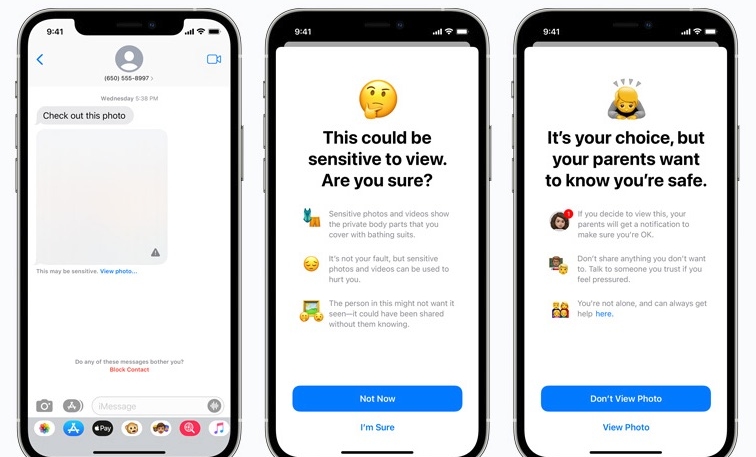Apple announced today that it is delaying the rollout of the Child Safety Features that it announced last month following pushback from multiple quarters.
The new communication tools will allow parents to play a more informed role in helping their children navigate the world of online communication. The Messages app will use on-device machine learning to warn about sensitive content while keeping private communications unreadable by Apple.
iOS and iPadOS will use new applications of cryptography to help limit the spread of CSAM online while designing for user privacy. CSAM detection will help Apple provide valuable information to law enforcement on collections of CSAM in iCloud Photos.
Updates to Siri and Search provide parents and children expanded information and help if they encounter unsafe situations. Siri and Search will also intervene when users try to search for CSAM-related topics.
These features were scheduled for later this year in updates to iOS 15, iPadOS 15, watchOS 8, and macOS Monterey.
Apple confirmed that the negative feedback it has received from customers, advocacy groups, researchers, and others has given the company pause and it has decided to make improvements.
Apple issued this statement about its decision:
Last month we announced plans for features intended to help protect children from predators who use communication tools to recruit and exploit them, and limit the spread of Child Sexual Abuse Material. Based on feedback from customers, advocacy groups, researchers and others, we have decided to take additional time over the coming months to collect input and make improvements before releasing these critically important child safety features.
After Apple announced the Child Safety Features, they were widely criticized by multiple individuals and organizations, including the Electronic Frontier Foundation (EFF), privacy whistleblower Edward Snowden, politicians, policy groups, university privacy researchers, Apple employees, and more. Although Apple has attempted to dispel what it says are misunderstandings and reassure users by sharing FAQs, releasing new documents, and more.
Although Apple still plans to roll out the “critically important” features, the company still appears to be intent on releasing the features.


